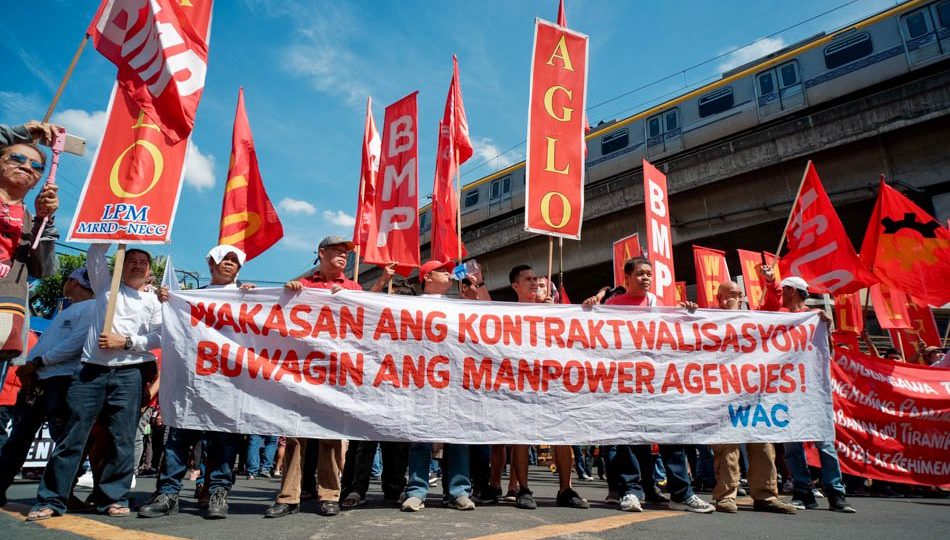Two years after pledging to do so in his election campaign, Philippine President Rodrigo Duterte yesterday finally signed an executive order (EO) prohibiting illegal “contractualization,” a move many businesses have used to skirt their obligations to provide full benefits for their employees.
Known colloquially as “endo” or “endo of contract,” contractualization refers to when businesses hire employees under a fixed-term contract of fewer than six months to avoid having to regularize workers.
Philippine law requires employers to regularize employees who have hit the six-month mark and provide them with mandatory benefits like health insurance and bonuses.
“To all non-compliant and abusive employers who are engaged in labor contracting, your days are numbered,” Duterte said in his speech in Cebu yesterday.
According to the EO, contracting or sub-contracting is prohibited “when undertaken to circumvent the worker’s rights to security of tenure, self-organization, and collective bargaining and peaceful concerted activities pursuant to the 1987 Philippine Constitution.”
While this would have been the perfect Labor Day gift to Filipino workers, many think the EO is not as groundbreaking as it might seem at first blush.
Bayan Muna party-list Rep. Carlos Isagani Zarate criticized the EO, calling it “useless,” as it basically reiterates what is already in the Labor Code.
“What is needed now is a policy that bans all forms of job contracting. This EO only serves to appease workers who are angry at President Duterte for turning his back on his promise to stop ‘endo’ and contractualization,” Zarate said.
Labor groups had earlier submitted a proposed EO stating that “direct hiring of the employee by the principal employer shall be the general norm in employment relations.”
Even Duterte acknowledged in his speech yesterday that the Labor Code still needs to be amended before true change can happen.
“I remain firm in my commitment to put an end to endo and illegal contractualization. However, I believe that in order to implement an effective and lasting solution to the problems brought about by contractualization, congress needs to enact a law amending the Labor Code,” he said.
Earlier today, Senate President Aquilino Pimentel III vowed to prioritize passing a law that would support the EO. According to Pimentel, a law is necessary because, without one, the new EO could be overturned by a different president.
The House of Representatives had approved a security of tenure bill in January.
The EO was also criticized for being “pro-employer” because it does not totally ban all contractual jobs.
While Labor Secretary Silvestre Bello III denied this, he admitted that he thinks it is necessary for some jobs, like attendants in department stores, to be under contract.
“There are certain services that can be the subject of a contractual arrangement,” he said in an interview with news channel ANC yesterday.
According to Bello, this is necessary because malls usually need more or fewer employees depending on the time of the year, with Christmas being the busiest season.
Signing the EO is the latest development in an issue that has been see-sawing in the last two years.
Ending contractualization was one of Duterte’s big campaign promises in 2016, but just last month, the administration said that the president was considering not signing an EO and simply leaving the issue to congress.





Reader Interactions